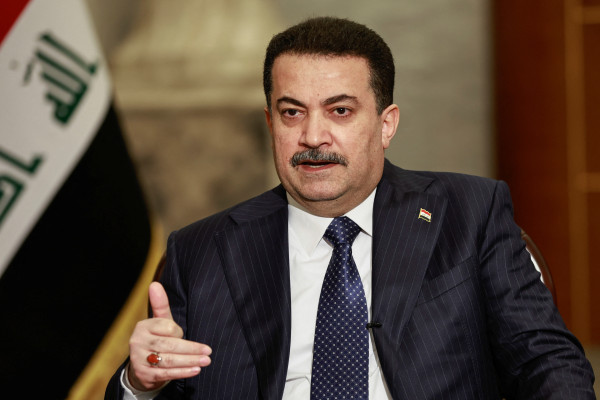Iraqi Shi’ite Muslim ruling parties and armed groups are weighing the pros and cons of armed intervention in Syria, viewing as a grave threat the advance of Sunni Islamist rebels who have taken two Syrian cities and now bear down on a third.
Baghdad has a dark history with Syria-based Sunni fighters, thousands of whom crossed into Iraq after the 2003 U.S. invasion and fuelled years of sectarian killing before returning again in 2013 as Islamic State to conquer a third of the country.
The Syrian rebels currently advancing in Syria, led by Hayat Tahrir al-Sham, have disavowed Al Qaeda and IS and say they have no ambitions in Iraq, but the ruling factions in Iraq have little trust in those assertions.
Iraq has amassed on its border with Syria thousands of fighters from its conventional military as well as the Popular Mobilization Forces (PMF), a security agency containing many Iran-aligned armed groups that previously fought in Syria.
The orders so far are to defend Iraq’s western flank, rather than to intervene to help Syrian President Bashar al-Assad, according to an Iraqi Shi’ite politician, a government adviser and an Arab diplomat briefed on the matter.
But the calculation could change, at least for some Iraqi factions, depending on developments, including if the rebels take the major Syrian city of Homs, if Assad falls, or if Shi’ites are persecuted, the sources said.
Iraqi government spokesperson Bassem Al-Awadi said Iraq does not seek military intervention in Syria but described the division of Syria as a “red line” for Iraq, without elaborating.
Reuters previously reported that hundreds of Iraqi fighters had crossed into Syria to help bolster Assad’s forces, joining Iraqi and Lebanese Hezbollah fighters already in the country, but there has not yet been a mass mobilization from Iraq.
The country’s government, led by moderate Prime Minister Mohammed Shia al-Sudani, has tried desperately to avoid being dragged into the spiralling regional conflict that has come with the Gaza war, instead trying to focus on rebuilding after decades of war.
“The Iraqi government’s stance from the beginning has been that Iraq is not a side in this crisis,” said Falih al-Fayadh, leader of the PMF, in a televised speech on Friday.
“But it is not wise for there to be a fire in your neighbour’s house while you sleep, reassured without thinking of what might happen,” he said.
With Reuters inputs
Thirty eight years in journalism, widely travelled, history buff with a preference for Old Monk Rum. Current interest/focus spans China, Technology and Trade. Recent reads: Steven Colls Directorate S and Alexander Frater's Chasing the Monsoon. Netflix/Prime video junkie. Loves animal videos on Facebook. Reluctant tweeter.





